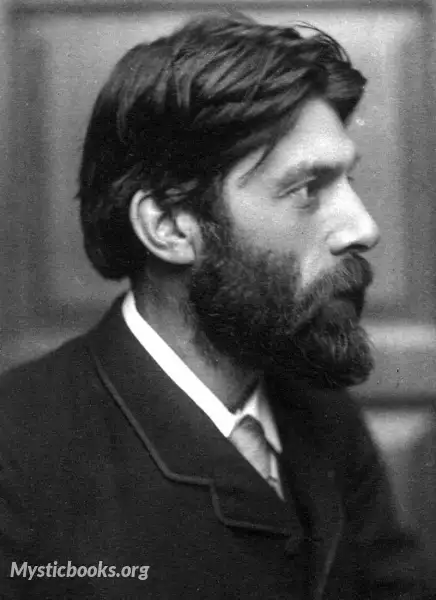
Timeline
Title
Country/Nationality
Robert Bridges
Robert Seymour Bridges OM was an English poet who was Poet Laureate from 1913 to 1930. A doctor by training, he achieved literary fame only late in life. His poems reflect a deep Christian faith, and he is the author of many well-known hymns. It was through Bridges' efforts that Gerard Manley Hopkins achieved posthumous fame.
Bridges was born at Walmer, Kent, in England, the son of John Thomas Bridges and his wife Harriett Elizabeth, daughter of the Rev. Sir Robert Affleck, 4th Baronet. He was the fourth son and eighth child. After his father's death his mother married again, in 1854, to John Edward Nassau Molesworth, vicar of Rochdale, and the family moved there.
Bridges was educated at Eton College and Corpus Christi College, Oxford. He went on to study medicine in London at St Bartholomew's Hospital, intending to practise until the age of forty and then retire to write poetry. He practised as a casualty physician at his teaching hospital and subsequently as a full physician to the Great Northern Hospital. He was also a physician to the Hospital for Sick Children.
Lung disease forced Bridges to retire in 1882, and from that point on he devoted himself to writing and literary research. However, Bridges' literary work started long before his retirement, his first collection of poems having been published in 1873. In 1884 he married Mary Monica Waterhouse, daughter of the architect Alfred Waterhouse R.A., and spent the rest of his life in rural seclusion, first at Yattendon, then at Boars Hill, Berkshire (close to Oxford), where he died.
He was elected to the Fellowship of the Royal College of Physicians of London in 1900. He was appointed Poet Laureate in 1913, the only medical graduate to have held the office.
He was the father of poet Elizabeth Daryush and of the cabinet secretary Edward Bridges.
As a poet Bridges stands rather apart from the current of modern English verse, but his work has had great influence in a select circle, by its restraint, purity, precision and delicacy yet strength of expression. It embodies a distinct theory of prosody. Bridges' faith underpinned much of his work.
In the book Milton's Prosody, he took an empirical approach to examining Milton's use of blank verse, and developed the controversial theory that Milton's practice was essentially syllabic. He considered free verse to be too limiting, and explained his position in the essay "Humdrum and Harum-Scarum". His own efforts to "free" verse resulted in the poems he called "Neo-Miltonic Syllabics", which were collected in New Verse . The metre of these poems was based on syllables rather than accents, and he used the principle again in the long philosophical poem The Testament of Beauty , for which he was appointed to the Order of Merit in that year. His best-known poems, however, are to be found in the two earlier volumes of Shorter Poems . He also wrote verse plays, with limited success, and literary criticism, including a study of the work of John Keats.
Books by Robert Bridges
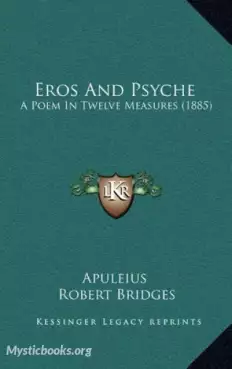
Eros & Psyche; a poem in twelve measures
As Psyche - the youngest daughter of a petty Cretan king - grows into the full flower of womanhood, she becomes worshiped by the common people as the living apotheosis of Aphrodite. Aphrodite - noting her worshipers forsaking her temples to instead a...

The Growth of Love
This is a mesmerizing poetic journey that delves into the profound depths of human emotion and the transformative power of love. Set against the backdrop of an enchanting landscape, from the tender buds of affection to the blossoming of passion and t...

To the United States of America
In celebration of Independence Day in the United States, 2007, LibriVox volunteers bring you 12 different recordings of To the United States of America by Robert Bridges. This was the Weekly Poetry project for the week of July 1st, 2007. (Summary by...
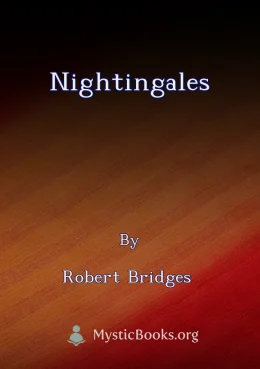
Nightingales
LibriVox volunteers bring you 7 different recordings of Nightingales by Robert Bridges, published in "The Oxford Book of English Verse" in 1919. This was the weekly poetry project for the week of September 14, 2008.

Eros and Psyche
Robert Bridges' Eros and Psyche is a retelling of the classic myth of Eros and Psyche. The poem is divided into twelve cantos, one for each month of the year, with the number of stanzas in each canto corresponding to the number of days in that month....
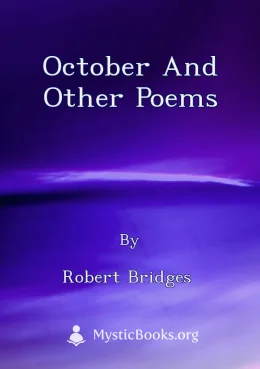
October and Other Poems
This collection of poetry by Robert Bridges is divided into three sections. The first section contains poems written in 1913. The second section contains poems written during World War I, reflecting the state of international politics. The third sect...
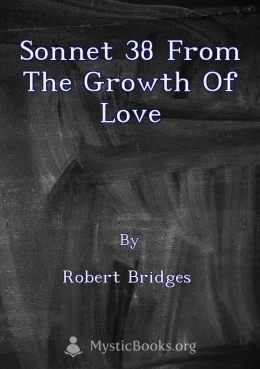
Sonnet 38 from The Growth of Love
Sonnet 38 from "The Growth of Love" is a poignant and introspective poem by Robert Bridges, a renowned English poet laureate. The sonnet explores themes of love, time, and the complexities of human relationships. Through evocative imagery and philoso...